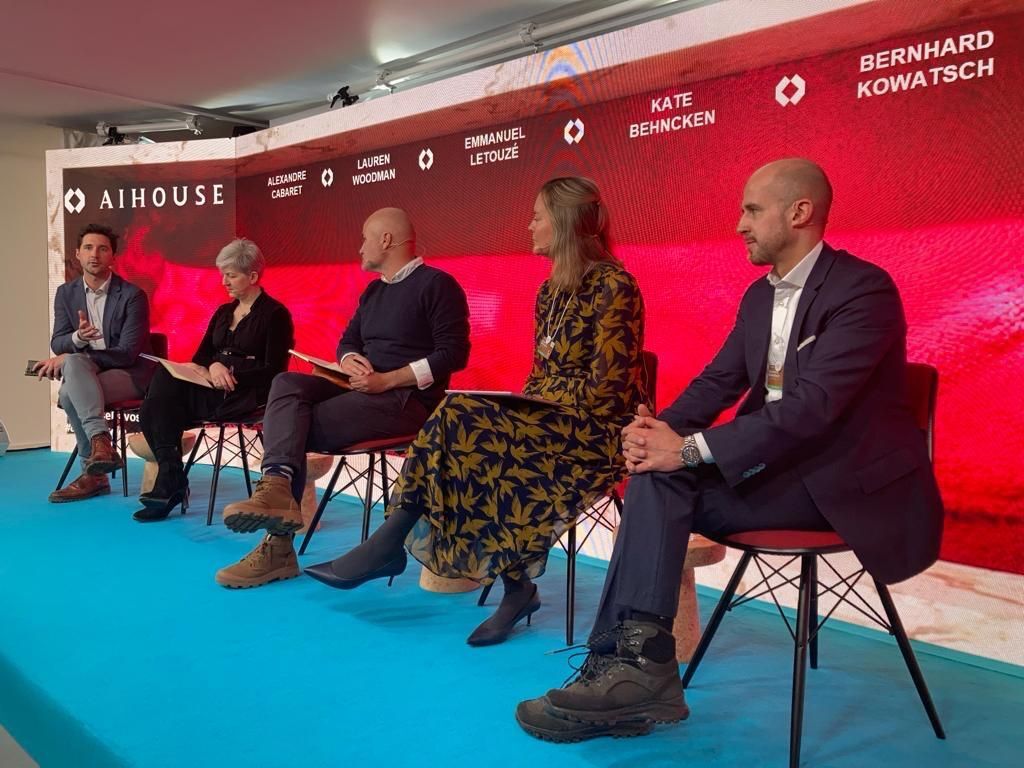On Monday, January 15, 2024, Data-Pop Alliance’s (DPA) Director Emmanuel Letouzé participated in a panel discussion titled, “AI for Humanitarian and Development Applications” at AI House Davos during the World Economic Forum’s annual meeting in Switzerland.
The panel brought together voices from the humanitarian sector, including Lauren Woodman (DataKind), Kate Behncken (Microsoft), and Bernhard Kowatsch (WFP), with Alexandre Cabaret (Devex) acting as moderator (group pictured below), to discuss the critical role of AI in achieving the SDGs, with a focus on perspectives and applications across various sectors. The challenges and potential of AI, particularly in low- and middle-income countries, were also explored. The event fostered collaboration between international organizations and AI experts to showcase scalable solutions and share best practices for sustainable global development.

During the course of the session, Emmanuel discussed the various applications of AI in Data-Pop Alliance’s work, including measuring climate-induced migration in Senegal, mental health outcomes in Morocco and gender-based violence (GBV) in Colombia and Sierra Leone. Additionally, he shared how our OPAL Project is utilizing AI to work towards humanitarian solutions and the SDGs.
Despite the potential (and current good) that AI represents for the humanitarian sector, Emmanuel also pointed out four key components (and challenges and requirements) of creating a “positive” AI ecosystem, where AI can be utilized for actual social good, rather than just for profit. These include:
- Ensuring safe, predictable, and ethical access to and analysis of relevant data (“crumbs”), which we know can be biased, sensitive, etc.;
- Strengthening local AI capacities (human, tech, infrastructural) to avoid widening the digital divide, including through mass data literacy investments;
- Fostering AI communities, including through national data strategies (as DPA has done in Senegal and Ghana), partnerships, trust between actors of local ecosystems; and
- Nurturing a healthy “AI culture” in which AI is a mindset to make data and facts matter and do meaningful things, even if that means occasionally NOT using AI, but rather, more appropriate low-tech solutions.
The key highlight from Emmanuel’s participation in the panel was that by taking the time to develop this culture, despite the high level of collective efforts it entails, AI can be better utilized to address the multitude of challenges the world is facing, as well as those that will continue to emerge in the future.


![M002 - Feature Blog Post [WEB]](https://datapopalliance.org/wp-content/uploads/2025/10/M002-Feature-Blog-Post-WEB.png)





